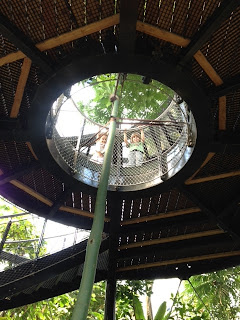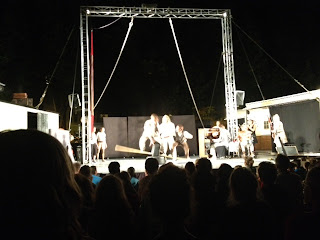We've been expecting a call from Bea's teacher, as all the children in his class whose mother tongue is not German — of which there are about half a dozen children — have been speaking with the language support teacher to assess how much extra tuition they need in German. Bea had this extra language support all the way through kindergarten once a week. The teacher was very pleased to let me know today that Bea did so well in the assessment that she thought he no longer needed additional support. He makes mistakes, sure, but no more than regular Swiss children, i.e., they mix their High German, and Swiss German, which is normal. So that was a really nice boost for Bea, he's done amazing in his bi-lingual language development.
It was funny, as when he was doing his homework in maths the same day (simple number practice), I asked him as his maths was taught in German, did he do his homework in German? He told me, "Yes, I did, but then I switched languages as I remembered I can speak English!"
There have been some great studies to show that second language acquisition at a young age is a great foundation for future language development, as it strengthens the pathways in the brain which enable you to switch between them. Which is no doubt why when I try to speak French now as I found out in the summer, I speak a very poor version of French-German, and get no-where fast! So, whether or not he regularly uses German at at later stage, he'll have a solid head-start for languages . . . .























